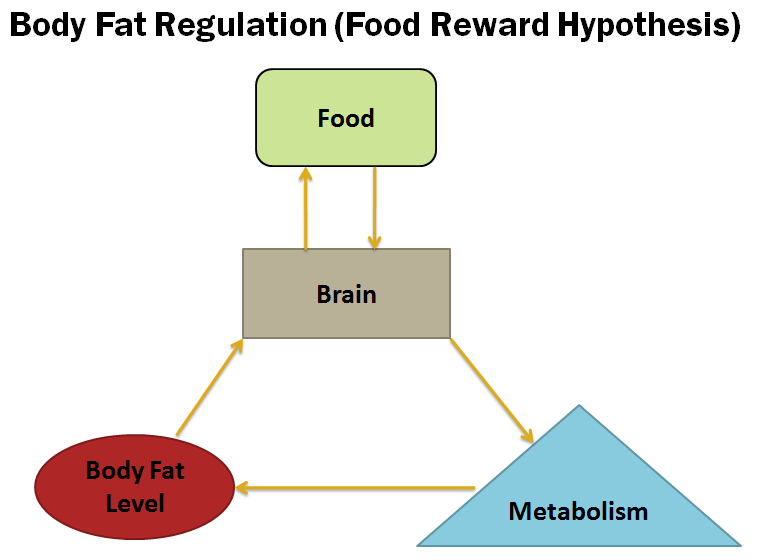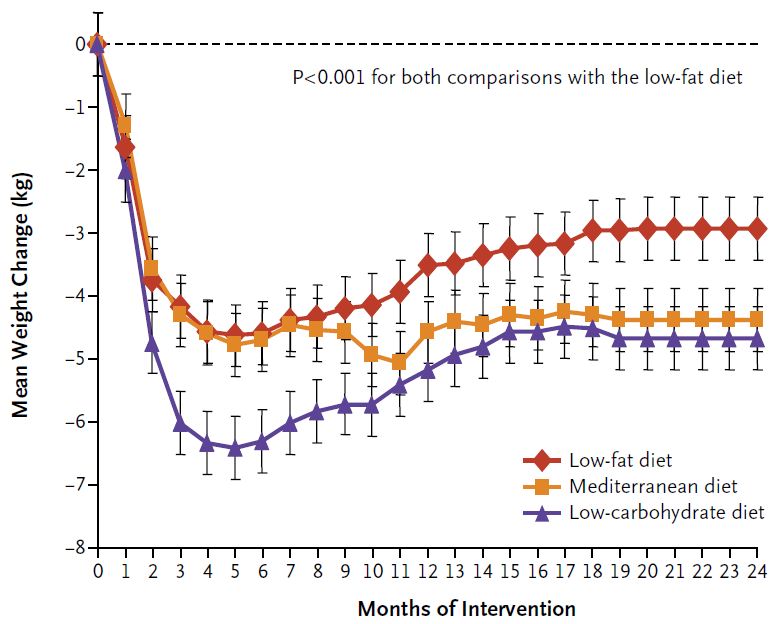Food Reward vs. Carbohydrate: Hypotheses of Obesity
September 9, 2011
As you’ve likely seen from my recent(ish) posts, I’ve been really interested in food-reward lately. Stephan from Whole Health Source has brought paleosphere attention to the Food Reward Hypothesis of Obesity (FRHO), which seems to have irked at least one fan (Gary Taubes) of the Carbohydrate Hypothesis of Obesity (CHO).
I think that low-carb diets can be a great treatment for a host of conditions, perhaps especially “diabesity.†I do not think that carbohydrate is what makes people obese or diabetic (in most cases). To be fair, I’m certainly not convinced that hyper-rewarding diets are what cause the diseases of [western] civilization (DOC) either. Fact is: wheat, vegetable oils, and sucrose (in large quantities) are poisonous (in addition to being part of the high-carb, hyper-rewarding SAD), and eating poisonous stuff is probably bad for you.
As pointed out by @evolutionarypsy, Stephan is not talking about what causes DOC; he’s just interested in body fat regulation. I’m not sure those two can be separated so readily. Certainly some people get fat without getting sick (or vice versa), but I think it’s a good bet that being sick changes how your body regulates body fat. I don’t think that being fat causes sickness, so I guess in my mind the options look like:
- The same thing causes obesity and DOC (This is where Taubes would say, “Carbs!â€).
- Poisonous food causes sickness, which can cause obesity.
- Hyper-rewarding food causes obesity, poisonous foods cause sickness.
I’m sure the truth is not encompassed by any one of these options (most likely in something I haven’t considered at all 🙂 ).
I tend to lean towards the third option currently. As I said, I don’t think obesity and DOC are completely separable (for instance – systemic inflammation caused by poisonous food can interfere with leptin signaling, resulting in poorly regulated body fat levels [alluded to by Emily Deans] ), but it’s certainly possible to get sick/notfat or fat/notsick, so it seems to me that the causes of fat and sick should be seperable.
As for tending towards the FRHO – it simply covers more anecdotal/epidemiological ground than the CHO. I’m sure I don’t even need to mention the Kitavans, who live happy and thin on a high-carb, low-reward diet. Personally, I had great success in terms of body composition half a decade ago with my own high-carb, low-reward diet. It was not a healthy diet by any means (plain bagels, veggies, chicken breast, sandwiches with few condiments/cheese), but I had a low-bf. More recently, after great success on a low-carb, low-reward diet (lc paleo), I’ve ratcheted up the carbs (but not reward) and maintained my ~8% bf.
Skip this sidebar if you don’t like the anecdotal stuff. I just returned from a two-week vacation four days ago. On said vacation, I ate a high-reward, high-carb diet (think paleo + lots of ice cream, cookies, cake, beer). As you’d expect, I put on a little body fat. The day after I got back to eating paleo (actually a little more low-reward, high-carb than normal), I got hot. And I mean hot. It’s finally calmed down this morning, but I spent the better part of three days sweating sitting still. And I haven’t been hungry, so I haven’t been eating as much. I’m just about back to my pre-vacation body compostion (happily). These symptoms, in my opinion, are evidence that my brain has told my body to shed body fat (just like the FRHO predicted!).
Now it’s certainly true that even though a significant percentage of my calories have been coming from carbohydrate, I’m probably consuming less total carbohydrate than I was on vacation. So you could argue that the weight loss and lack of appetite are due to a lowered production of insulin (as the CHO would). I can’t come up with a CHO-friendly explanation for why I’ve been running so hot.
So this post has turned into a long, rambly disaster, when all I came here to do was share some pictures.
In an effort to more clearly separate the theories (as I see them), I’ve constructed extremely rudimentary charts detailing how I think each hypothesis works. Again, these are super simplified, and I’m using the term “metabolism†loosely.
************************************************************
From a mechanistic point of view, two serious flaws in the CHO become clear to me while looking at these (over-simplified) pictures. First, the CHO doesn’t include the brain in the body fat level planning party. Most will agree that body fat is useful for survival in times of famine or low temperatures, but that it can also be antagonistic for swift, efficient movement in hot weather. If it makes sense to control body fat in ways not related to our food intake (seasons, location, climate, stress, etc…), why wouldn’t our brain serve as the regulating official?
Second, by the CHO, your level of body fat is not relevant to the way your “metabolism†behaves. This seems absurd because most would agree that those with more fat lose fat faster, and that when people become obese, they tend to gain fat over a number of years and then level off.
Another big critical piece of evidence that the FRHO holds up better than the CHO, is this chart from Whole Health Source:
That looks a whole heckuva lot like the response to a step input of an underdamped second-order system. For those of you out there who haven’t taken a Controls or Vibrations Class, this is exactly the way some systems respond when the input signal changes suddenly. The system attempts to change its output to satisfy equilibrium at the new input, but it changes so rapidly to do so that it can’t stop changing fast enough, so it overshoots, then reverses direction of change to achieve the desired output.
In terms of the FRHO, all three diets represent a change of input (lower food reward). This causes the hypothalamus (controller) to desire a lessened incoming leptin signal. To achieve this, it signals the “metabolism†to shed pounds, because the leptin signal level is proportional to fat mass. The subjects lost weight rapidly until the leptin signal was lower than desired, at which point they gained a few pounds and hit equilibrium.
The fact that the FRHO explains exactly why ALL THREE DIETS CAUSED THE SAME SHAPE WEIGHT LOSS CURVE, and the CHO can’t even explain why the low-fat group lost weight at all is a big deal.
****
All a very long-winded way of saying I’m in the FRHO corner of the debate.
Entry filed under: Food Choices, Food Reward. Tags: .





What’s Being Said